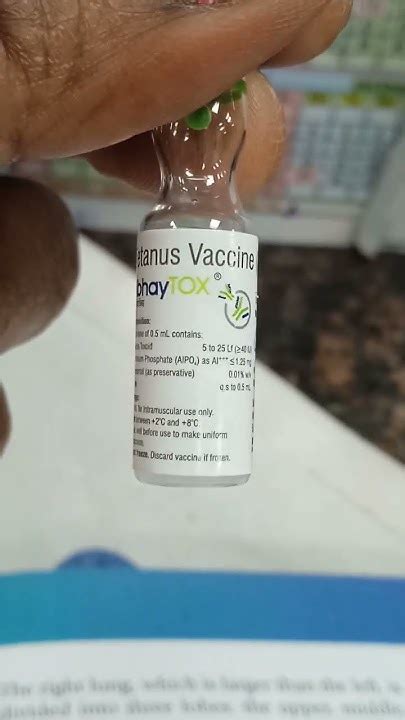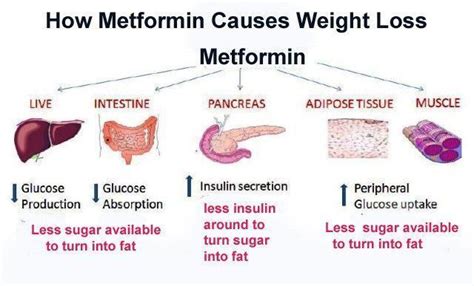When Is Tetanus Injection Needed? Stay Protected

Tetanus, a bacterial infection caused by Clostridium tetani, can lead to severe and potentially life-threatening complications if left untreated. The tetanus bacterium produces spores that are widely distributed in the environment, particularly in soil, dust, and the gastrointestinal tracts of animals. These spores can enter the body through wounds, cuts, or other breaks in the skin, and then produce toxins that affect the nervous system. Understanding when a tetanus injection is needed is crucial for preventing this serious condition.
The Role of Tetanus Vaccination
The primary method of preventing tetanus is through vaccination. Tetanus vaccines are usually administered in combination with other vaccines, such as diphtheria and pertussis (DTaP vaccines for children and Tdap or Td vaccines for adolescents and adults). The vaccination schedule typically includes a series of doses in early childhood, followed by booster shots every 10 years throughout life. However, there are specific situations where an immediate tetanus injection might be required, regardless of the regular vaccination schedule.
Situations Requiring a Tetanus Shot
Dirty or Deep Wounds: If you have a deep wound or a cut that is contaminated with dirt, feces, or soil, you may need a tetanus booster shot. This is because such wounds have a higher risk of tetanus infection.
Animal Bites: Bites from animals, especially if they are deep or become infected, can potentially introduce tetanus spores into the wound.
Burns: Severe burns can also increase the risk of tetanus infection, especially if they become contaminated.
Puncture Wounds: Wounds caused by puncture injuries, such as stepping on a nail, are at higher risk because the object can push tetanus spores deep into the tissue.
Surgical Procedures: In some cases, surgical procedures, especially those involving contaminated or dirty environments, might require a tetanus shot as a precautionary measure.
Travel to High-Risk Areas: Traveling to areas where medical care might be limited or where the risk of injuries is higher (e.g., certain outdoor or adventure travel) might necessitate updating your tetanus vaccination before departure.
Who Should Get a Tetanus Shot?
- Children: All children should receive the tetanus vaccine as part of their routine vaccination schedule. Booster shots are given every 10 years.
- Adolescents and Adults: A Tdap booster replaces one of the Td boosters for adolescents and adults to provide protection against pertussis as well. Then, Td boosters are recommended every 10 years thereafter.
- Pregnant Women: Pregnant women should receive a Tdap vaccine during the third trimester of each pregnancy to protect both the mother and the newborn against pertussis.
- Individuals with Injuries: Anyone who has not received a tetanus booster in the last 10 years and has a wound that might be at risk for tetanus infection should consider getting a booster shot.
Prevention is Key
Preventing tetanus infection through timely vaccinations and booster shots is far more effective than treating the disease after it develops. Understanding the risk factors and taking proactive measures can significantly reduce the incidence of tetanus. If you’re unsure about your tetanus vaccination status or have concerns about a recent injury, it’s essential to consult with a healthcare professional for personalized advice.
FAQs
How often do I need a tetanus shot?
+After the initial series of vaccinations in childhood, a booster shot is recommended every 10 years. However, if you have a deep or dirty wound, you might need a booster sooner, depending on your last vaccination date.
Can tetanus infection be treated?
+While there are treatments available for tetanus infection, such as wound care, antibiotics, and tetanus immune globulin, prevention through vaccination is much more effective. Treatment primarily focuses on managing symptoms and preventing further toxin production.
Are there any side effects of the tetanus vaccine?
+Common side effects of the tetanus vaccine are mild and temporary, including redness, swelling, or pain at the injection site, and mild fever. Serious side effects are rare. If you have concerns, discuss them with your healthcare provider.
In conclusion, understanding the situations in which a tetanus injection is necessary and maintaining up-to-date vaccination status are crucial steps in protecting against tetanus infection. Regular boosters and timely vaccinations can help prevent this serious condition, ensuring better health outcomes for individuals of all ages.



